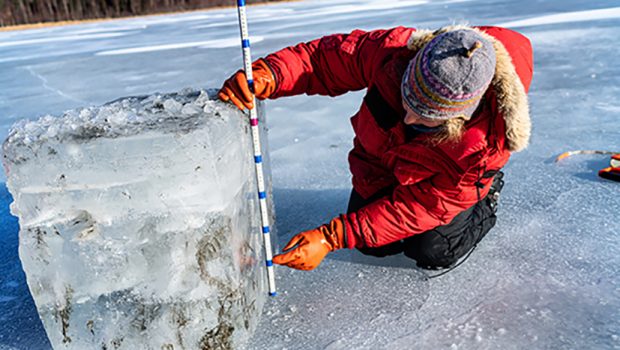Epson Global Survey reveals startling climate reality deficit
To mark 50 days before the start of the 2021 United Nations Climate Change Conference, also known as COP26, in the UK in November, Epson has announced the results of its Climate Reality Barometer. Epson’s research discovers a potentially damaging gap between climate reality and people’s understanding of its catastrophic effects. The survey (full Executive Summary below) captures global experiences and perceptions of climate change from over 15,000 consumers across Australia, Asia, Europe, North America and South America.
Timed to help frame discussions at COP 26, the goal of the Epson Climate Reality Barometer is to raise greater public awareness of climate change impacts, influence transformative business decisions, and better inform policy makers.
When questioned about their views on humanity’s ability to avert a climate crisis within their lifetimes, close to half of all respondents (46%) state they are “very” or “somewhat” optimistic. This significantly outweighs just 27% who express that they are very or somewhat pessimistic.
As the Intergovernmental Panel on Climate Change (IPCC) reports that some human-driven climate change will take millennia to reverse[ii], and given a litany of global events — including the warmest July[iii] ever recorded, wildfires[iv] in Europe, North America and Asia, and floods[v] in China, Columbia and Germany — Epson’s Climate Reality Barometer’s findings suggest a triumph of optimism over evidence and a damaging Climate Reality Deficit.
The most popular reasons supporting this optimism are growing public awareness of climate change (32%), the ability of science and technology to provide solutions (28%) and the move towards renewable energies (19%).
Epson Australia and New Zealand MD, Craig Heckenberg, said: “This is a wake-up call for everyone — governments, businesses and individuals — to work together, make the right decisions and inspire the right actions moving forward. One way in which Epson is helping to create a sustainable future for all of us is through our patented Heat-Free technology which uses up to 94% less energy when compared to an equivalent laser printer or copier. Heat-Free technology is already helping industries around the world move towards a more sustainable future and Epson is confident, with the support of our customers, that we can achieve the same result when it comes to printing.”
Companies can empower other businesses and consumers with sustainability supporting innovations. At Epson, as well as the use of highly energy efficient Heat-Free printing technology, the company has also made a significant R&D investment into environental technologies such as naturally derived (non-plastic) materials.
Beyond product and materials innovation, businesses can make a big difference by promoting and demonstrating climate responsibility. Epson carries this forward by: transitioning to 100% renewable electricity and engaging with initiatives such as the RE100 renewable energy project; working to close the resource loop for example, by promoting product refurbishment and reuse; and engaging in high impact partnerships such as its work with National Geographic to promote protecting permafrost[vi] through the Turn Down the Heat Campaign.
So what’s the feeling about all of this research in Australia?
In the past few months, it’s been reported that Australia has warmed on average by 1.4 degrees centigrade since national records began in 1910 (according to its science and weather agencies). This has led to an increase in the number of extreme heat events, as well as increased fire danger days (source).
- Despite this, over a third (37.7%) of people surveyed as part of the Epson Climate Reality Barometer in Australia, are optimistic that we will avert a climate disaster in their lifetime. For those who are optimistic, this is driven most by the belief that people are more aware of climate change dangers (36.6%), effective government action (20.6%) and the opportunity to use science and technology to solve problems (19.6%).
- On the other hand, 33.5% of Australians were pessimistic that we will avert a climate disaster in their lifetime. Those who are pessimistic are driven mostly by a feeling that there’s a lack of action (53.5%) and by a belief that people are not aware of climate change dangers (20.3%) – with 14% believing not switching to renewable energy sources link wind energy fast enough.
So, where we are today in Australia?
The top three events most associated with climate change in Australia were:
- Higher temperatures (74.9%)
- More wildfires (73.2%)
- Declining water supplies (70.2%)
With the least recognised being:
- Insect outbreaks (43%)
- Thawing permafrost (44.9%)
- Famine (48.2%)
So who should be acting in Australia?
Many in Australia, nearly a third (31.7%) of those surveyed, believe governments should be “most responsible” for tackling the climate emergency, and next are 11.7% who say business should – with one in 20 (4.9%) not believing in a climate change emergency.
There is evidence, however, that the idea of personal and collective responsibility is widely held too. Encouragingly, 12.6% of Australian respondents see that they are personally “most responsible”, while just over a third (36%) believe that we are all responsible — with action incumbent on governments, businesses and individuals alike.
In Australia, the top three actions people report that they are already doing, include:
- Improving recycling habits (74.3%)
- Reducing plastic use (67.5%)
- Walking or cycling more often (52.7%)
Many Australians are also looking to adopt new behaviours with 50.4% of the respondents are planning to switch to an electric vehicle in the future, 50.4% planning to switch to renewable energy and over a third (35.6%) planning to boycott unsustainable brands. However, 40.1% of Australian respondents say they will never adopt a plant-based diet
So what’s next for Australia?
The Epson Climate Reality Barometer and its discovery of the Climate Reality Deficit shows that there is a long way to go if we are to take the fundamental actions necessary to avert irreversible climate change. Greater understanding and collective endeavour, however, will enable and empower rapid action.
Working together, Epson believes that we can all build a better future and the business reality is that the time to act is now.
The Climate Reality Barometer suggests that for many, climate crisis remains something that happens to someone else. As the global survey reveals that only 14% of respondents recognise big businesses as most responsible for tackling the climate emergency, and just 3% small companies. It also suggests that now is the time for companies of all sizes to play a bigger role.
Yasunori Ogawa, global president of Epson, commented: “The discovery of the Climate Reality Deficit shows that awareness coupled with action, will be critical to tackling the emergency. Epson’s goal is to bring this awareness and the technologies needed — by our company, other businesses and consumers — to action transformational change. Sustainability is central to our business plan and backed by significant resources — because while we know there is a long way to go, we believe we can build a better future.”
[ii] https://www.ipcc.ch/2021/08/09/ar6-wg1-20210809-pr/
[iii] https://www.noaa.gov/news/its-official-july-2021-was-earths-hottest-month-on-record
[iv] https://www.bbc.co.uk/news/58159451
[v] https://www.reuters.com/business/environment/china-germany-floods-expose-climate-vulnerability-2021-07-22/
[vi] https://www.epson.co.uk/insights/article/epson-partners-with-national-geographic-to-encourage-businesses-to-turn-down-the-heat-in-the-fight-against-climate-change2





